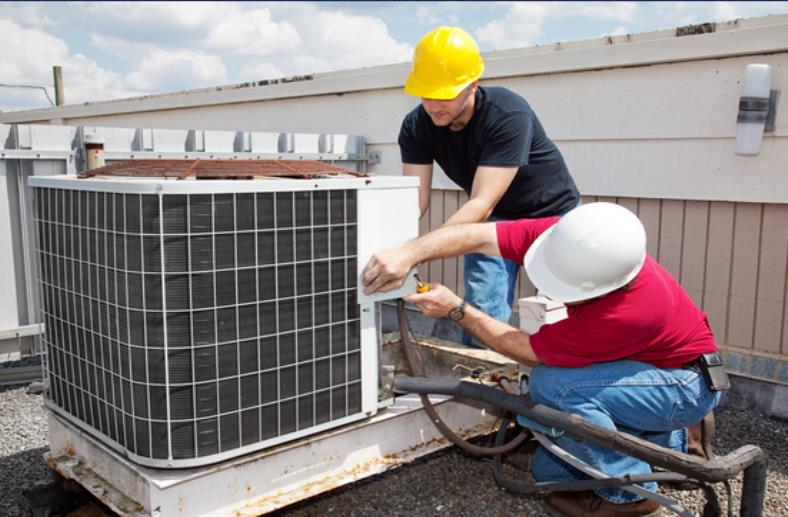In the intricate world of home comfort, selecting the right HVAC contractor is a decision of paramount importance. These professionals are not just service providers; they are the custodians of our indoor air quality and climate control. The right HVAC contractor ensures that your home’s heating, ventilation, and air conditioning systems operate efficiently, safely, and reliably. This guide aims to navigate you through the process of choosing a suitable HVAC contractor, ensuring that you can breathe easy, knowing your home’s climate control is in skilled hands.
Understanding HVAC Systems and Services
Key Components of HVAC Systems
HVAC systems are complex assemblies, crucial for maintaining comfortable indoor environments. The primary components include the furnace, for heating; the air conditioner, for cooling; ductwork, which channels air throughout the building; and thermostats, which regulate temperature. A profound understanding of these components is vital in recognizing the expertise required from a proficient HVAC contractor. Each component plays a specific role and needs regular maintenance and occasional repairs, which only a skilled contractor can provide effectively.
Variety of Services Offered by HVAC Contractors
HVAC contractors provide a spectrum of services that extend beyond mere installation and repairs. Their repertoire includes routine maintenance, emergency repairs, system upgrades, and consultations for energy efficiency. These services ensure that every aspect of your HVAC system, from the most rudimentary to the most advanced, receives expert attention. For example, in maintenance, a contractor might clean and replace filters, check refrigerant levels, and inspect electrical connections, ensuring optimal performance and preventing future breakdowns.
The Role of Technology in Modern HVAC Systems
The evolution of HVAC technology has introduced sophisticated features like smart thermostats and energy-efficient designs. Modern systems might include zoning capabilities, allowing different areas of a home to be heated or cooled independently, or advanced filtration systems that improve indoor air quality. An adept HVAC contractor should be proficient not only in traditional systems but also in these modern technologies, ensuring your system is up-to-date and efficient.
Criteria for Choosing the Right HVAC Contractor
Certifications and Licenses
Importance of Proper Licensing
Proper licensing is a critical factor in choosing an HVAC contractor. It’s a guarantee that the contractor adheres to industry standards and local regulations. Licensed contractors have proven their knowledge and skills, and they operate legally, providing a layer of protection and reassurance to homeowners.
Recognizing Credible Certifications
Credible certifications, like those from North American Technician Excellence (NATE), signify a contractor’s competence and dedication to quality. These certifications show that a contractor has received specialized training and passed rigorous examinations, highlighting their expertise in various aspects of HVAC technology.
Experience and Reputation
Evaluating Years of Service
The experience of an HVAC contractor, often reflected in their years of service, is indicative of their ability to handle a variety of HVAC issues. Contractors with extensive experience have likely encountered a wide range of scenarios, equipping them with the knowledge to tackle diverse problems effectively.
Assessing Customer Reviews and Testimonials
Customer reviews and testimonials offer insights into a contractor’s reputation. Positive reviews typically indicate reliability, quality customer service, and professional workmanship. They can provide real-world examples of a contractor’s skills, like the successful installation of a complex multi-zone HVAC system or rapid response to emergency repair needs.
Cost and Value Considerations
Understanding the Cost Structure
Understanding the cost structure of HVAC services is essential. It’s not just about the upfront costs but also about long-term value. A comprehensive quote should include details about labor costs, parts, potential additional charges, and warranties. This transparency helps in making an informed decision without unexpected financial surprises.
Balancing Cost with Quality of Service
While cost is a significant consideration, it should not be the sole deciding factor. Opting for the cheapest quote might lead to subpar service or inferior parts. It’s crucial to balance affordability with quality, ensuring that you receive value for your investment. A reliable contractor will provide a fair, competitive quote that reflects the quality of their services and parts used.
Red Flags and Common Mistakes
Recognizing red flags is crucial in the selection process. Be wary of contractors who offer significantly lower bids than others, as this might indicate substandard work or hidden costs. Lack of clear communication, absence of a physical business address, or reluctance to provide references are other potential warning signs. Common mistakes include neglecting to read contracts thoroughly, not verifying the contractor’s insurance, and overlooking the importance of a warranty.

